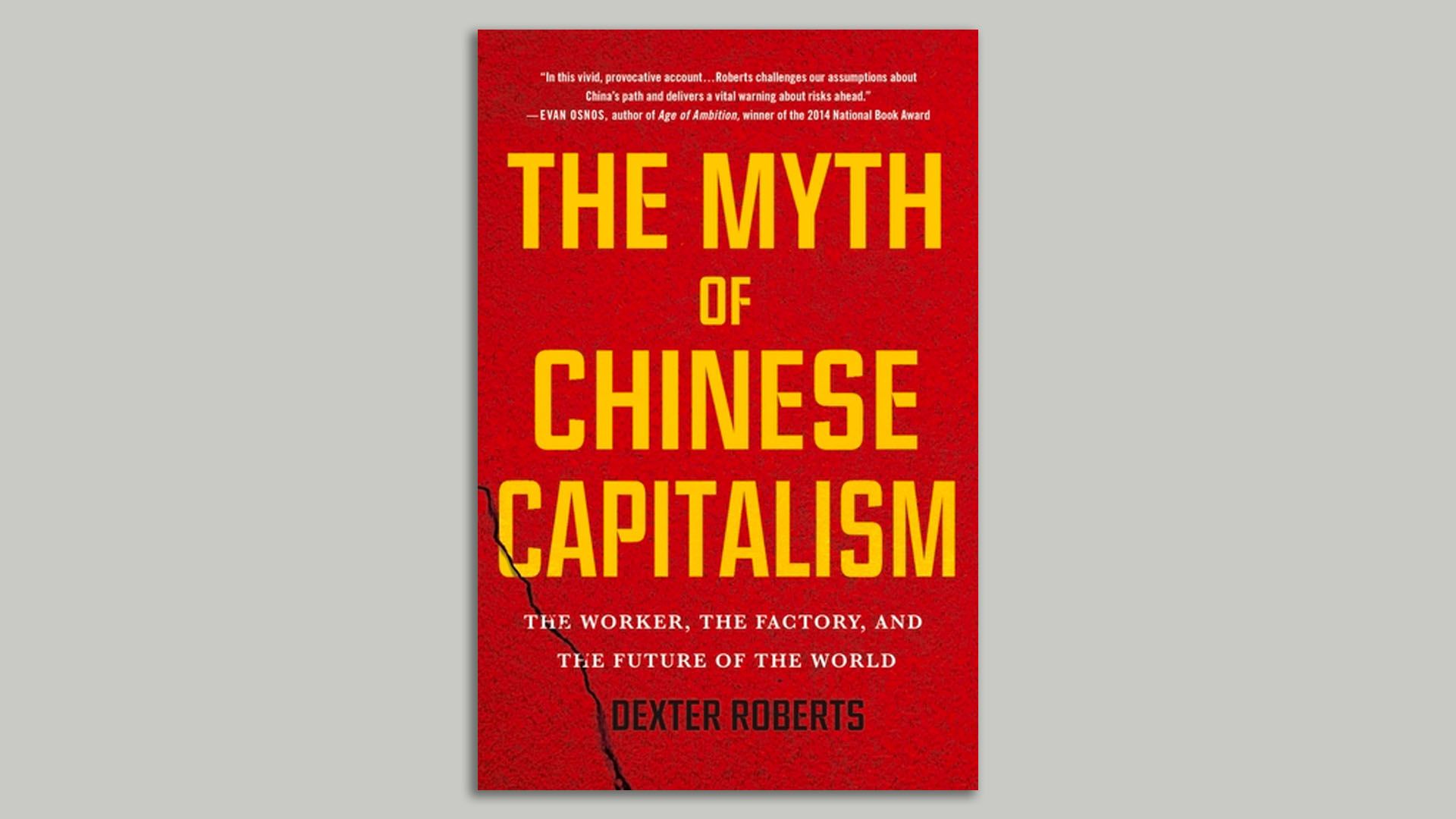China's apartheid system was key to its economic explosion, new book argues

- Bethany Allen-Ebrahimian, author ofAxios China

Credit: St. Martin's Press
China's migrant workers — approximately 288 million wage laborers locked into low wages with few social benefits — aren't just a human rights issue, a new book argues; they're part of an apartheid system undergirding China's 30-year economic miracle.
Why it matters: What Beijing has touted as a better model of economic growth is actually based on systematic exploitation of its rural population, writes Dexter Roberts, a former Bloomberg China correspondent.
- His book, "The Myth of Chinese Capitalism: The Worker, the Factory, and the Future of the World" is slated for release on March 10 by St. Martin's Press.
- Roberts follows an extended family of migrant workers from one village over the course of almost two decades, as they seek work in Chinese cities.
The problem: The plight of China's migrant workers is well known and has lasted decades.
- China's household registration system makes it very difficult for those born in rural areas to become legal residents in cities, where they move in search of economic opportunity.
- The workers become, essentially, undocumented migrants in their own country, shut out of better jobs, education, and most social benefits.
- Low wages have meant permanent poverty for migrant workers but high profits for many of China's factories.
China's leaders should relax household registration requirements to improve the lives of a huge portion of the population. But they haven't, argues Roberts.
- The usual explanation for this is that China's urban middle class opposed such measures, and Chinese authorities don't want to lose the support of a key socio-economic class.
- Urbanites are protective of their exclusive access to high-quality medical care and education for their children and fear the crowding that would come if millions of migrant worker families had the same access.
But Roberts provides a convincing structural answer to this question that implicates Beijing's leaders themselves.
- A reliable supply of low-wage, permanently powerless workers to man China's factories are how China's factories have been able to undersell global manufacturers.
- Cheap Chinese goods are how China became the factory of the world, a model which powered the country's stunning economic growth over the past three decades.
Now that that model has run out of steam, however, Chinese leaders are hoping migrant workers will return to the villages, rather than remaining in cities to suck up urban benefits.
- That means no household registration reform. Roberts isn't optimistic that it will happen any time soon, because Beijing doesn't want to give up control.
- "It comes down to a question of loosening control. In order to do this, they need to hands off a little bit. They need to stop thinking or acting as if they can decide where everyone lives," he told Axios in an interview.
- "If there’s any hope for these rural migrants, you need to let them live where they want to live and work where they want to work."